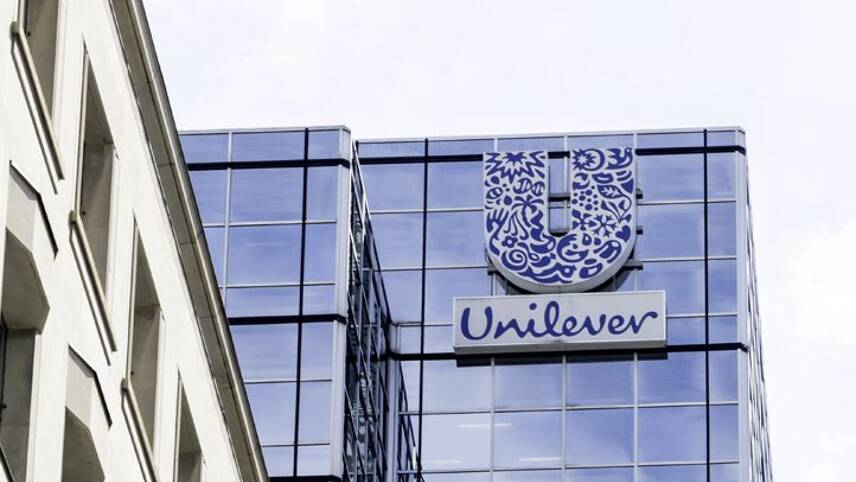Register for free and continue reading
Join our growing army of changemakers and get unlimited access to our premium content

The new commitments will also focus on supply chain emissions and regenerative practices
Unilever is the latest corporate to revamp its approach to sustainability in alignment with net-zero emissions and the needs of the Paris Agreement.
Having already set science-based targets to eliminate carbon emissions from its operations and to halve the greenhouse gas (GHG) emissions across its products and value chain by 2030, Unilever has now pledged to reach net-zero emissions for products by 2039. Net-zero emissions will account for the sourcing of the materials used, up to the point of sale for products.
Accompanying the net-zero commitment is a new €1bn Climate & Nature Fund that will be used over the next decade to introduce projects across its brand portfolio that will focus on land restoration, reforestation, carbon sequestration, wildlife protection and water preservation.
Unilever’s commitments at a glance:
- Net-zero emissions products by 2039
- €1bn Climate & Nature Fund over the next decade
- Deforestation-free supply chain by 2023
- Make all product formulations biodegradable by 2030
- Implement water stewardship programmes for local communities in 100 locations by 2030
Unilever’s chief executive Alan Jope said: “While the world is dealing with the devastating effects of the Covid-19 pandemic, and grappling with serious issues of inequality, we can’t let ourselves forget that the climate crisis is still a threat to all of us.
“Climate change, nature degradation, biodiversity decline, water scarcity – all these issues are interconnected, and we must address them all simultaneously. In doing so, we must also recognise that the climate crisis is not only an environmental emergency; it also has a terrible impact on lives and livelihoods. We, therefore, have a responsibility to help tackle the crisis: as a business, and through direct action by our brands.”
The net-zero commitment will see Unilever build and prioritise partnerships with suppliers that have set or committed to their own science-based targets – an ask that is growing in prominence amongst larger businesses.
Unilever also wants to communicate the carbon impact and footprint of its products to consumers and will set up invoicing and declaration systems for suppliers based on carbon footprints. Unilever will create partnerships with other businesses and organisations to standardise data collection, sharing and communication.
The company will also advocate for a wider net-zero transition and will publicly call on governments to set net-zero targets backed up with intermediate reduction targets and enabling policies such as carbon pricing.
Regenerative agriculture
Unilever will work with farmers and smallholders on regenerative agriculture programmes that restore forests, improve biodiversity and enhance soil.
Despite ranking amongst the top performers on approaches to combatting deforestation, traceability remains an issue for key ingredients such as palm oil, and Unilever has had to cancel supplier contracts based on links to deforestation in the past.
Currently, 89% of Unilever’s forest-sourced commodities are listed as sustainably sourced to global standards. Unilever has committed to improving the traceability of its supply chain to allow for accurate verification of deforestation-free commodities as part of an overall commitment to eliminating deforestation from its supply chain by 2023.
Unilever has already incorporated blockchain technology to improve supply chain practices, and satellite monitoring and geolocation tracking are two other technologies that will be used by the company to engage with suppliers on farming practices.
The company will build on its Sustainable Agriculture Code for suppliers by creating a new Regenerative Agriculture Code. The Code will include best-practice approaches to sustainable farming and will be open to the entire industry.
Unilever will also develop partnerships with NGOs and governments to protect areas of high conservation value with high levels of carbon sequestration potential.
Water and biodegradable commitments
With around 40% of the world’s population subjected to water scarcity, Unilever will work with governments to improve access to water for communities located in water-stressed regions. The company will develop water stewardship programmes for local communities in 100 locations by 2030.
In addition, Unilever will join the 2030 Water Resources Group, steered by the World Bank, to promote water management in key water-stressed markets including India, Brazil, South Africa, Vietnam and Indonesia.
Building on the water commitment is a pledge to make all product formulations biodegradable by 2030, in a bid to minimise impact their on water systems. Unilever notes that some ingredients currently have no viable biodegradable alternatives and will focus on unlocking innovation in this area.
Last year, Unilever announced it would halve its use of virgin plastic by 2025 by reducing plastic packaging by more than 100,000 tonnes, increasing the amount of recycled plastics it uses and collecting and processing more plastic packaging than it sells.
Unilever’s chief supply chain officer Marc Engel added: “Our collective responsibility in tackling the climate crisis is to drive an absolute reduction of greenhouse gas emissions, not simply focus on offsetting – and we have the scale and determination to make it happen. But this is not enough. If we want to have a healthy planet long into the future, we must also look after nature: forests, soil biodiversity and water ecosystems.
“In most parts of the world, the economic and social inclusion of farmers and smallholders in sustainable agricultural production is the single most important driver of change for halting deforestation, restoring forests and helping regenerate nature. In the end, they are the stewards of the land. We must, therefore, empower and work with a new generation of farmers and smallholders in order to make a step change in regenerating nature.”
Matt Mace


Yes, but what about reducing/eliminating the plastic in all those brands it owns?